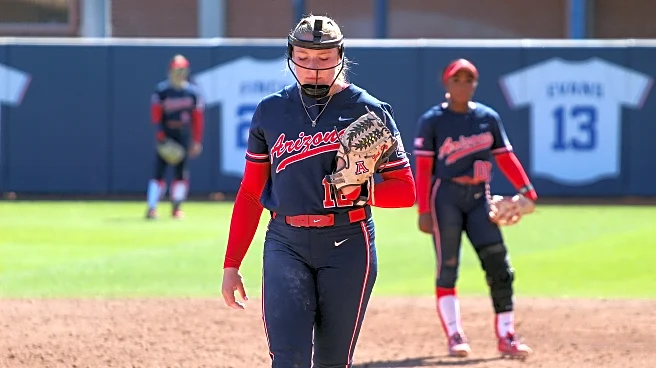Rapid Read • 8 min read
Tesla has been granted a permit by the Texas Department of Licensing and Regulation to operate its Robotaxi ride-hailing business throughout the state. This license allows Tesla to run its autonomous service without human safety drivers, marking a significant milestone for the company. Tesla's Robotaxi service, which uses Model Y vehicles equipped with partially automated driving systems, has been operational in Austin since late June. The service is remotely monitored by employees in an operations center. Tesla plans to expand its autonomous ride-hailing services to Phoenix, Arizona, where it has applied for permits to test and operate vehicles both with and without drivers. This development positions Tesla to compete directly with established ride-hailing companies like Uber and Lyft.
AD
The issuance of the Texas permit is a pivotal moment for Tesla as it seeks to expand its autonomous ride-hailing services across the U.S. This move could significantly impact the ride-hailing industry, challenging the dominance of Uber and Lyft. Tesla's entry into the market with a fully autonomous service could drive innovation and potentially lower costs for consumers. However, Tesla faces legal challenges, including a lawsuit from shareholders alleging securities fraud related to safety risks with its self-driving technology. The company's stock has seen a decline this year, but the permit announcement led to a slight increase in after-hours trading.
Tesla plans to expand its Robotaxi service to other regions, including Phoenix, Arizona, where it has applied for additional permits. The company aims to serve half of the U.S. population by the end of 2025 with its autonomous ride-hailing services. As Tesla continues to develop its technology, it may face further scrutiny and legal challenges related to safety and regulatory compliance. The competition with Uber and Lyft could intensify, potentially leading to changes in pricing and service offerings in the ride-hailing industry.
Tesla's expansion into autonomous ride-hailing services raises ethical and legal questions about the safety and reliability of self-driving technology. The company's legal challenges highlight the ongoing debate over the transparency and accountability of tech companies in disclosing risks associated with new technologies. The shift towards autonomous vehicles could also have broader implications for employment in the transportation sector, as human drivers may become less necessary.
AD
More Stories You Might Enjoy












